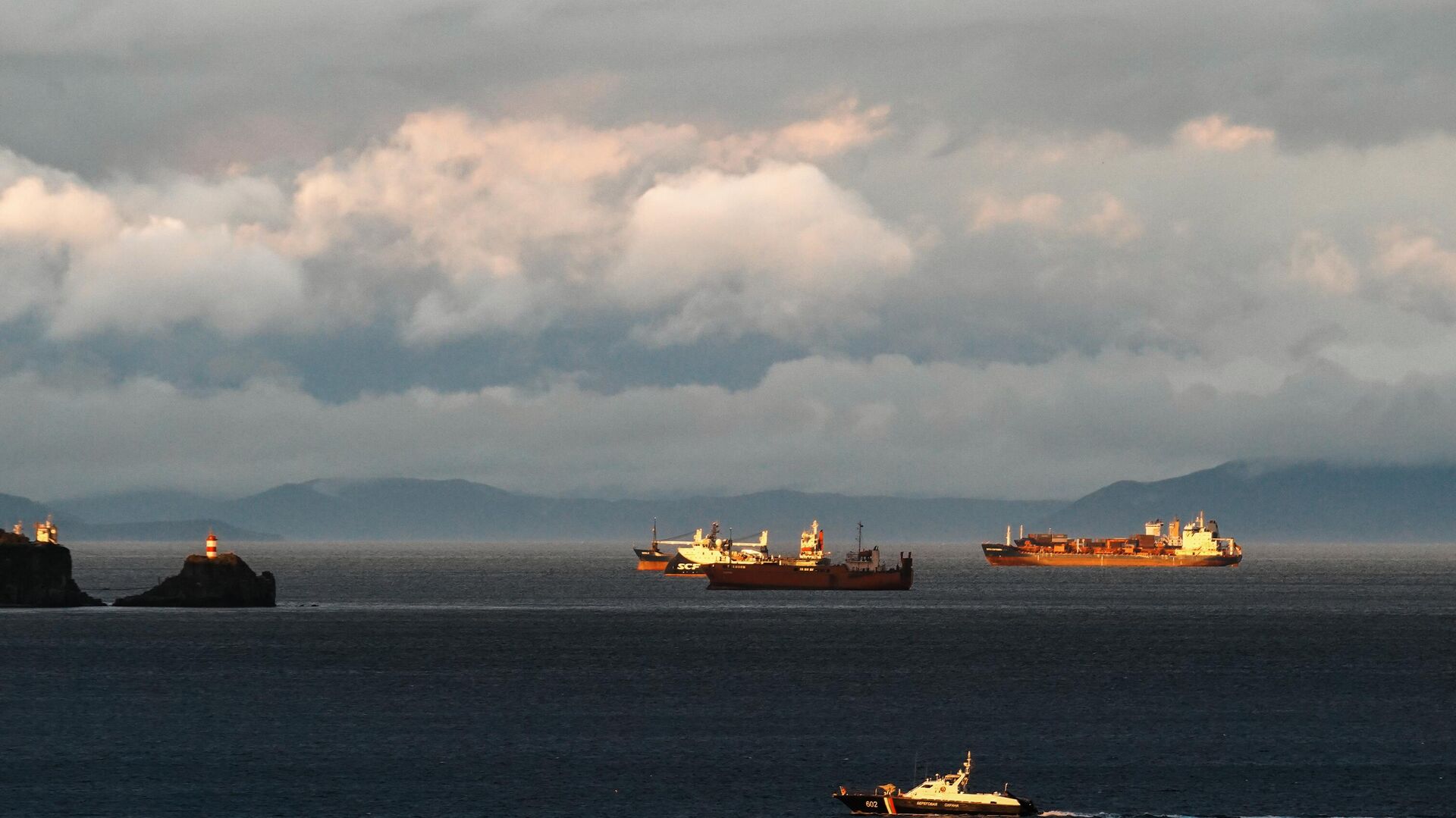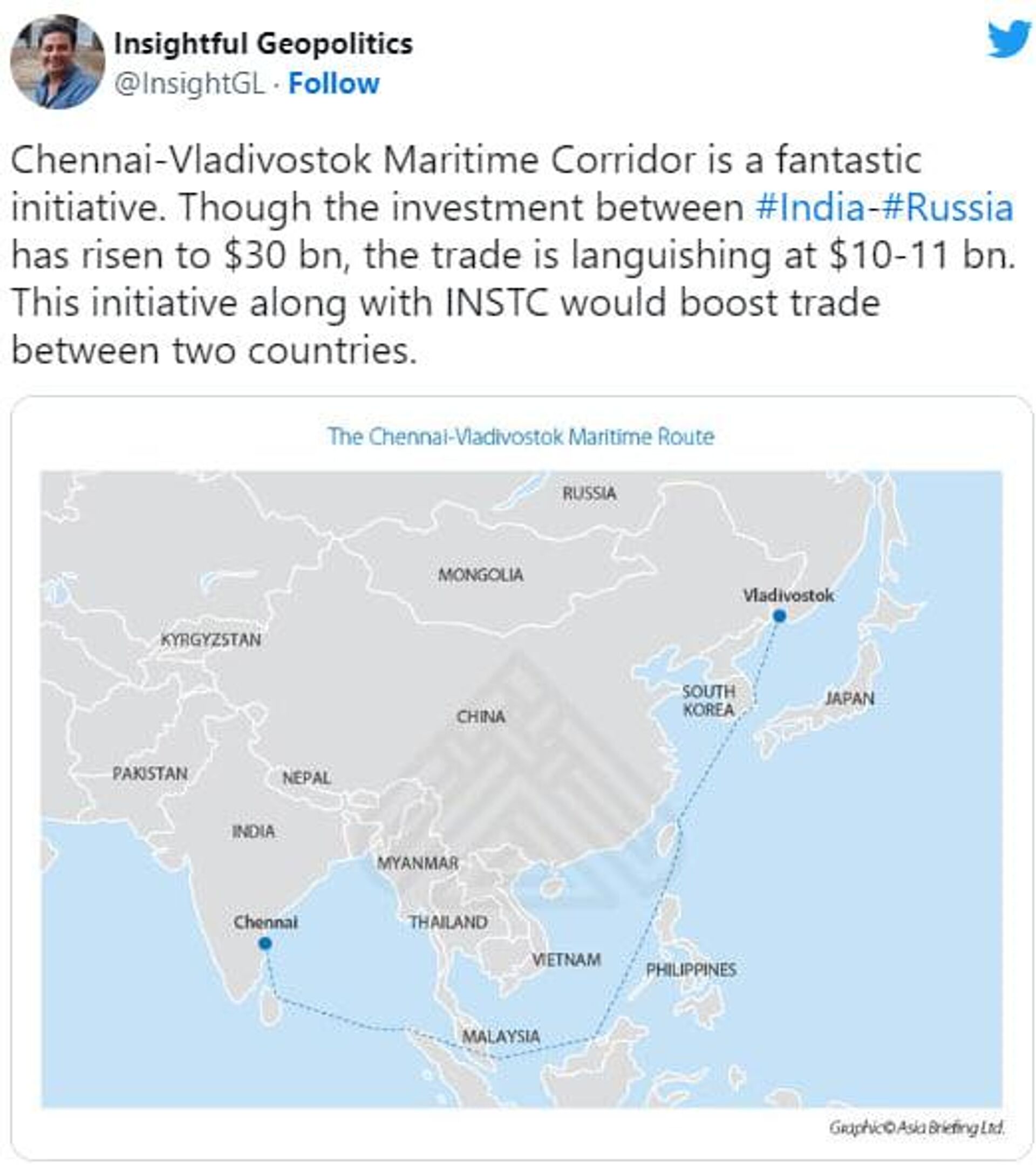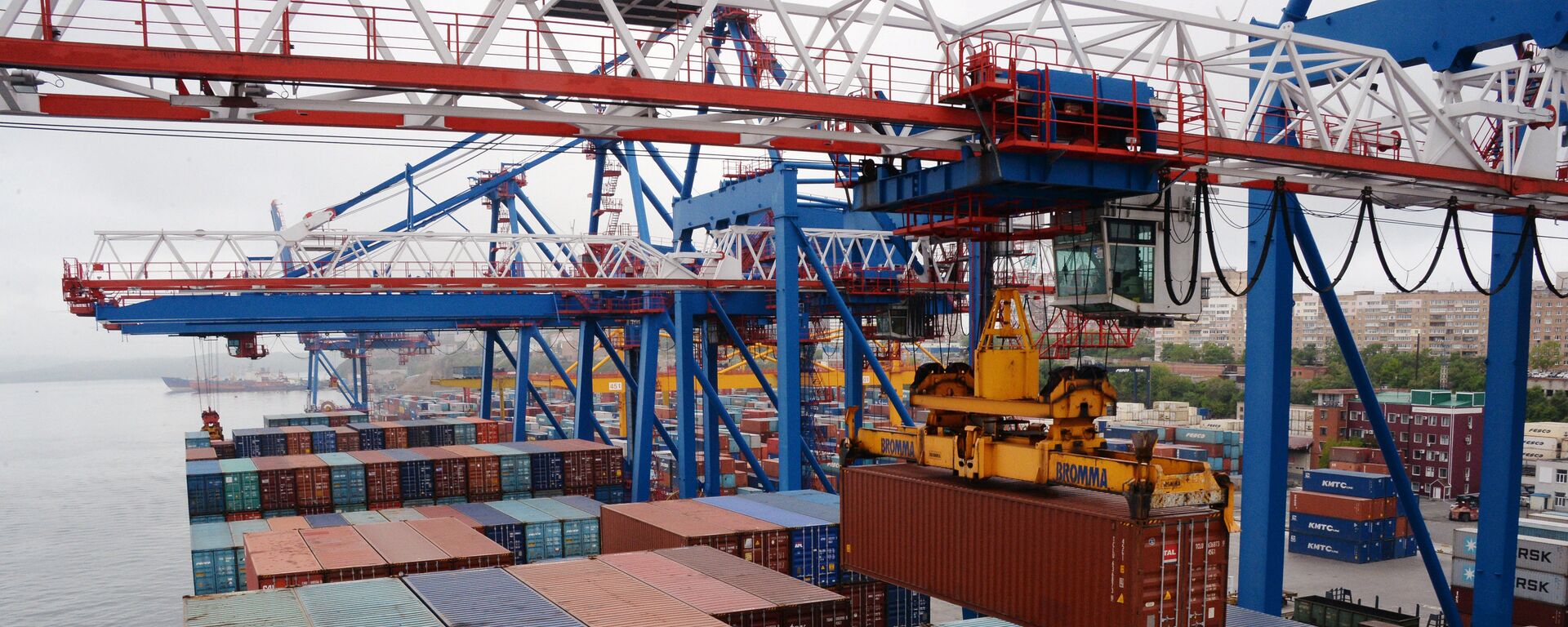https://sputniknews.in/20231108/with-imec-in-limbo-chennai-vladivostok-sea-route-offers-indias-energy-trade-stability-5308616.html
Chennai-Vladivostok Sea Route Offers India's Energy Trade Stability Amid IMEC's Limbo
Chennai-Vladivostok Sea Route Offers India's Energy Trade Stability Amid IMEC's Limbo
Sputnik India
A Delhi-based expert explains the new relevance of the Chennai-Vladivostok shipping route after the escalation of tensions between Israel and Hamas have jeopardized the plans for the IMEC.
2023-11-08T22:29+0530
2023-11-08T22:29+0530
2023-11-10T18:26+0530
sputnik opinion
india
russia
chennai–vladivostok maritime corridor
trade corridor
sea trade
rupee-rouble trade
oil supplies
russian oil
south china sea
https://cdn1.img.sputniknews.in/img/07e7/0b/08/5315974_0:174:3023:1874_1920x0_80_0_0_a2950c303906d3d37a5e46f08ffd084c.jpg
The United States likely was in favour of the India-Middle East-Europe Corridor (IMEC) with the goal of strengthening India as a counterbalance to China but after the escalation of the conflict between Israel and Palestine, IMEC hung by a thread, so India set its sights on Russia-backed Chennai-Vladivostok Eastern Maritime Corridor (EMC).Uttam Sinha, Senior Fellow, Manohar Parrikar Institute of Defence Studies and Analyses (MP-IDSA), in a conversation with Sputnik India, explained the change that the shipping corridor will bring to India's energy trade amid the relevant tensions in the Middle East, how it will boost India's energy trade and several other aspects."Given the heightened instability in the West Asian region, the early operationalisation of the EMC would result in more stable energy trade between India's east coast, which has a concentration of oil refineries, and Russia's Far East oil resources," he said, while highlighting India's advantage in the oil refining sector, which is expected to add about 57 million tonnes per annum of crude oil refining capacity by 2030.The MP-IDSA Senior Fellow also said that the EMC will help diversify dependence and risk from conflict-ridden West Asia.Highlighting the political-diplomatic aspect of the route, the expert said that it will add another dimension and further consolidate the strategic partnership between India and Russia as India has huge stakes in the energy resources of the Russian Far East.According to Sinha, the EMC will help cut up to 16 days off the time it takes to transport cargo from India's east coast to Russian ports in the Far EastOn what positive changes the trade route will bring to India-China relations as ships will pass through the South China Sea, Sinha said that while the Chennai-Vladivostok Eastern Maritime Corridor has the potential to reset trade routes through Northeast Asia, it will also have to contend with China's strategic and security concerns in the South China Sea and its Maritime Silk Route ambitions, and this is a challenge that both Russia and India will have to take into account and seriously consider.
https://sputniknews.in/20230929/chennai-vladivostok-shipping-route-to-boost-india-russia-trade-indian-chamber-4517640.html
india
russia
south china sea
vietnam
Sputnik India
feedback.hindi@sputniknews.com
+74956456601
MIA „Rossiya Segodnya“
2023
Rahul Trivedi
https://cdn1.img.sputniknews.in/img/07e6/0c/13/136500_0:0:628:627_100x100_80_0_0_72097ff894c7446b70d2efafcb719720.jpg
Rahul Trivedi
https://cdn1.img.sputniknews.in/img/07e6/0c/13/136500_0:0:628:627_100x100_80_0_0_72097ff894c7446b70d2efafcb719720.jpg
News
en_IN
Sputnik India
feedback.hindi@sputniknews.com
+74956456601
MIA „Rossiya Segodnya“
Sputnik India
feedback.hindi@sputniknews.com
+74956456601
MIA „Rossiya Segodnya“
Rahul Trivedi
https://cdn1.img.sputniknews.in/img/07e6/0c/13/136500_0:0:628:627_100x100_80_0_0_72097ff894c7446b70d2efafcb719720.jpg
chennai-vladivostok shipping corridor, chennai-vladivostok eastern maritime corridor, emc, india-middle east-europe corridor, imec, conflict between israel and palestine, uttam sinha, manohar parrikar institute of defence studies and analyses, mp-idsa, energy trade of india, tension in the middle east, russia’s far east oil resources, india's oil refining sector, crude oil refining capacity, international north–south transport corridor, instc, south china sea, maritime silk route, russia’s rosneft, ongc videsh
chennai-vladivostok shipping corridor, chennai-vladivostok eastern maritime corridor, emc, india-middle east-europe corridor, imec, conflict between israel and palestine, uttam sinha, manohar parrikar institute of defence studies and analyses, mp-idsa, energy trade of india, tension in the middle east, russia’s far east oil resources, india's oil refining sector, crude oil refining capacity, international north–south transport corridor, instc, south china sea, maritime silk route, russia’s rosneft, ongc videsh
Chennai-Vladivostok Sea Route Offers India's Energy Trade Stability Amid IMEC's Limbo
22:29 08.11.2023 (Updated: 18:26 10.11.2023) A Delhi-based expert explains the new relevance of the Chennai-Vladivostok shipping route after the escalation of tensions between Israel and Hamas have jeopardized the plans for the India-Middle East-Europe Economic Corridor (IMEC).
The United States likely was in favour of the India-Middle East-Europe Corridor (IMEC) with the goal of strengthening India as a counterbalance to China but after the escalation of the conflict between Israel and Palestine, IMEC hung by a thread, so India set its sights on Russia-backed Chennai-Vladivostok Eastern Maritime Corridor (EMC).
Uttam Sinha, Senior Fellow, Manohar Parrikar Institute of Defence Studies and Analyses (MP-IDSA), in a conversation with Sputnik India, explained the change that the shipping corridor will bring to India's energy trade amid the relevant tensions in the Middle East, how it will boost India's energy trade and several other aspects.
Talking about the benefits of the Chennai-Vladivostok Eastern Maritime Corridor (EMC), Sinha said it has the potential to boost trade relations, especially in energy resources, between India and Russia as India is an energy dependent country and imports 87 per cent of its oil and 65 per cent of its gas.
"Given the heightened instability in the West Asian region, the early operationalisation of the EMC would result in more stable energy trade between India's east coast, which has a concentration of oil refineries, and Russia's Far East oil resources," he said, while highlighting India's advantage in the oil refining sector, which is expected to add about 57 million tonnes per annum of crude oil refining capacity by 2030.
The MP-IDSA Senior Fellow also said that the EMC will help diversify dependence and risk from conflict-ridden West Asia.
Highlighting the
political-diplomatic aspect of the route, the expert said that it will add another dimension and further consolidate the strategic partnership between India and Russia as India has huge stakes in the
energy resources of the Russian Far East.
According to Sinha, the EMC will help cut up to 16 days off the time it takes to transport cargo from India's east coast to Russian ports in the Far East
“The current trade route from India to the Far East via Europe through the International North-South Transport Corridor (INSTC) between Mumbai and St Petersburg takes about 35-40 days. In fact, a large container ship can cover the distance between Chennai and Vladivostok in 10 to 12 days. Just as INSTC is an artery on the western front, EMC can be an artery on the eastern front," he stated,” he stated.
On what positive changes the trade route will bring to India-China relations as ships will pass through the South China Sea, Sinha said that while the Chennai-Vladivostok Eastern Maritime Corridor has the potential to reset
trade routes through Northeast Asia, it will also have to contend with China's strategic and security concerns in the South China Sea and its Maritime Silk Route ambitions, and this is a challenge that both Russia and India will have to take into account and seriously consider.
“Given the Russia-China quasi-alliance and economic convergence,
Russia's interest in energy relations with India puts it in a better position to secure the EMC because of its interest in energy relations with India. However, India needs to be also proactive and increase its footprint in the South China Sea, not necessarily by increasing its naval presence, but by further exploring the Vietnamese oil block and enhancing political and diplomatic relations with the country,” the senior fellow stated adding that Russia’s Rosneft, which partners with ONGC Videsh, has also been exploring the same oil fields in Vietnam and in other words, Vietnam can be the building block to the success of the EMC.




